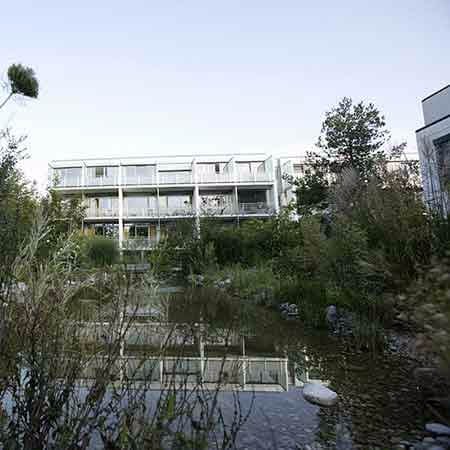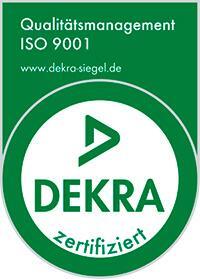Adrenal cancer, or adrenocortical carcinoma, is a fairly rare malignancy with an aggressive course. The tumor usually develops in the superficial layer – the cortical layer, where all hormones are synthesized (except for adrenaline and noradrenaline). Therefore, quite often the tumor itself starts producing hormones in abnormal amounts, causing specific syndromes that sometimes are pronounced, or sometimes latent.
Content
- Symptoms and types of adrenal tumors
- Treatment tactics
- How is cancer treatment in Germany carried out?
- Chemotherapy and drug therapy for adrenal cancer
- After adrenal cancer treatment in Germany
- The cost of treatment in German hospitals
- Adrenal cancer treatment in Germany with Booking Health
Symptoms and types of adrenal tumors
One of the most common adrenal formations is adrenal cortex tumors. Such tumors provoke excessive production of cortisol. As a consequence, patients have Cushing syndrome, which symptoms include:
- Arterial hypertension and headaches
- Weakness and rapid muscle fatigue
- Obesity with fat deposits on the back, abdomen, and chest with relatively thin limbs
- Early puberty in children
- Early decline in sexual function in adults
- Hormonal dysfunction, including enlarged mammary glands, testicular hypoplasia, and reduced potency in men and male-pattern hairiness, clitoral hypertrophy, and voice timbre changes in women
- Stretch marks on the skin of the abdomen, and thighs
According to recent information, this type of cancer facilitates the appearance of osteoporosis, leading to pathological fractures. Nervous system dysfunctions are also noted in the form of overexcitation and depression. About a quarter of such patients have a kidney infection and kidney stone disease.
There are also benign aldosteronomas that are common. The cases of malignancy are also known. The hormone aldosterone produced by the tumor affects mineral-salt metabolism in the body, which, in turn, causes:
- Cardiovascular manifestations such as hypertension, shortness of breath, arrhythmias, hypertrophy, and subsequent myocardial dystrophy
- Renal symptoms such as increased frequency and volume of urination, frequent nocturnal urination, thirst, the appearance of alkaline reaction of urine
- Neuromuscular symptoms: muscle weakness, seizures, or sensitivity disorders
Nonspecific symptoms of adrenal cancer are signs typical for all malignant tumors, especially pronounced in the advanced stages of the disease, including symptoms of intoxication like weakness, lethargy, and fatigue, anemia, and other changes in blood tests, exhaustion, and pain syndrome.
You should consult a doctor on any symptoms of hormonal imbalance, as well as signs that do not clearly indicate a disease. These include weakness, frequent headaches, persistent high blood pressure, thirst, and urinary disorders.
Treatment tactics
Adrenal tumors can be benign or malignant, with benign masses being more common. So, the treatment tactics are based on the area of focus of the treatment: it can be just a primary tumor, or it can be both tumor and its metastases that need management. Moreover, advanced adrenal cancer can occur from a secondary neoplasm that originated outside the adrenal gland, for example, in the stomach, ovaries, prostate, intestine, kidney, and other organs. So, when diffuse hyperplasia of adrenal tissue is detected, it is necessary to clarify the nature of the formation and the tactics of its further treatment (or monitoring).
Metastases to the adrenal gland are relatively common and symptomatically quite expressive, while symptoms will depend on the location and size of the primary tumor. In addition, the symptoms of metastatic cancer depend on the hormonal activity of the tumor.
After the necessary diagnostic tests and examinations, the patient with adrenocortical carcinoma is prescribed treatment, often surgical, but sometimes conservative, or the detected mass is monitored, but not yet treated (if the tumor is benign and hormonally inactive).
How is cancer treatment in Germany carried out?
Surgical treatment was, is, and probably will be the most effective method of adrenocortical carcinoma for a long time to come. The entire affected adrenal gland is removed during surgery. The main thing is not to damage the tumor capsule, because tumor cells can spread, and their aggressiveness is potentially very high. Some information suggests that the removal of lymph nodes that are enlarged and closest to the tumor improves long-term survival results. With a large cancerous tumor that has invaded the kidney, it may be necessary to remove the kidney.
General guidelines in medicine pose surgical treatment as preferable for stages 1 – 3 of adrenal cancer. The success of the surgical intervention is indicated by microscopically clear resection margins.
Approximately half of the operated patients experience local recurrence or metastasis of the tumor several years later. This is usually explained by the fact that there were already micrometastases in the body by the time of the primary surgery. That’s why it is so important to conduct the most extensive diagnostics to ensure the sufficiency of treatment to be carried out. The efficacy of the surgical intervention that consists of removing most of the tumor when it is first detected is questionable.
The removal of the adrenal gland using endoscopic equipment like the one used in laparoscopic adrenalectomy might be helpful for some patients with adrenocortical carcinoma. However, not enough information on the technique has been obtained due to the rarity of the tumor, and the opinions on the priority rating of this procedure differ in medicine. So far, recent studies in medicine showed that it is not recommended to perform laparoscopic adrenalectomy if the adrenal tumor is larger than 5 cm and invades the surrounding tissues with metastases to lymph nodes. Sufficient experience of the cancer surgeon is very important if the decision is made to proceed with such a procedure.
In the postoperative period, prevention or therapy of insufficient function of the remaining adrenal gland and, of course, prevention of thrombosis are included in the treatment regimen. Patients may have to take hormonal drugs for life to compensate for the function of one lost and the second atrophied adrenal gland. Replacement therapy is an inevitability that cannot be refused. At relapse after surgical treatment, doctors try to perform a resection. The degree of its radicalism is reflected in the life expectancy of the patients in such situations.
Chemotherapy and drug therapy for adrenal cancer
Because adrenal tumors are relatively rare, there are very few studies in medicine evaluating the efficacy of chemotherapy in treating them.
Drug therapy for adrenal cancer treatment in Germany eventually has two goals: reduction of hormone secretion by cancer cells and partial or complete reduction of the activity of the pathological process.
Drug therapy is prescribed for patients with advanced adrenal cancer and after partial resection of neoplasms. Drug therapy is carried out in combination with chemotherapy or without it. Generally, adrenocortical carcinomas are associated with high expression of a gene responsible for a protein that functions as a pump to remove chemotherapy from the cell, which neutralizes the effects of chemotherapy. Specific drugs, i.e. steroidogenesis inhibitors and cytostatic antineoplastic medications, slow down this pump, making chemotherapy more effective. Therefore, chemotherapy is usually prescribed in combination with them.
The drug is prescribed in capsules (daily intake of more than 3 g). This medication destroys normal and cancerous adrenal cells, preventing them from producing hormones (mainly cortisol). In 35% of cases, the use of this drug contributes to partial remission, much less often there is complete remission. There is no information on the effectiveness of taking the drug as an additional treatment after surgical resection of the tumor.
It is very important to monitor the level of the drug in the blood. As a rule, the maximum daily dosage of the drug should not exceed 6 g, otherwise, patients develop adverse reactions: nausea, vomiting, diarrhea, exhaustion, dizziness, loss of balance, or confusion.
The information from several clinical cases suggests that this drug group has had severe toxic effects on the liver. Among other things, they increase "bad" cholesterol (LDL) levels in the blood. Not all of the above adverse reactions are related to the direct effects on the body; they can often be seen as a consequence of insufficient production of hormones by the adrenal glands. Therefore, this drug should be prescribed in combination with medications that replenish the lack of cortisol in the body, such as hydrocortisone.
A systematic study evaluated the efficacy of four drugs in the treatment of advanced adrenal cancer. Seventy-two patients with inoperable or advanced tumors who had not previously been treated with chemotherapy were followed up. All patients were treated with an intravenous regimen of chemotherapy every 4 weeks, combined with the administration of steroidogenesis inhibitors and cytostatic antineoplastic medications and cortisone replacement therapy. The information from the study showed the effectiveness of this regimen: a positive response to the treatment was observed in approximately half of the patients: in five patients the tumor disappeared, and in eleven patients it became operable. In most cases, this therapy helped to prevent hormone secretion by the tumor.
After adrenal cancer treatment in Germany
To maintain the overall health condition and prevent disease, all cancer survivors should maintain a healthy lifestyle and diet, and continue to have regular checkups and examinations by their physician. Former patients who have received systemic chemotherapy should be screened for acute and long-term side effects.
According to the survival study information, approximately 25% of former patients have serious chronic disease 25 years after diagnosis. These may include secondary cancer (risk increased by radiation exposure), chronic heart failure (due to certain chemotherapy drug exposure), infertility or complications during pregnancy, and terminal kidney failure or kidney dysfunction.
The cost of treatment in German hospitals
The cost of treatment in Germany may vary somewhat depending on the status of the German hospitals and their location. For example, the cost of treatment in Germany in a public hospital is lower than in the university hospital or private hospital. In addition, the cost of treatment in hospitals in Southern Germany will be higher than in clinics in Northern or Eastern Germany.
In addition to the general price level of each individual region, the treatment conditions affect the cost of treatment.
General prices for treatment with different procedures are as follows:
- The cost of treatment with surgery starts at 9,065 EUR.
- The cost of treatment with chemotherapy starts at 1,985 EUR.
- The cost of treatment with radiation therapy starts at 13,800 EUR.
- The prices for cancer rehabilitation start at 951 EUR.
For more information about the preliminary prices for treatment in German hospitals in your clinical case, contact Booking Health.
Adrenal cancer treatment in Germany with Booking Health
For everybody who contacts Booking Health for the organization of treatment in Germany, we prepare individual offers from several German hospitals which are ready to accept the patient without delay.
Booking Health contacts doctors at German hospitals directly, so the foreign patients get multivariable preliminary information quickly.
If you need any information related to the treatment of adrenal cancer in Germany, contact Booking Health by filling in the request form on the website.
Authors:
The article was edited by medical experts, board certified doctors Dr. Nadezhda Ivanisova and Dr. Vadim Zhiliuk. For the treatment of the conditions referred to in the article, you must consult a doctor; the information in the article is not intended for self-medication!
Our editorial policy, which details our commitment to accuracy and transparency, is available here. Click this link to review our policies.
Sources:
National Library of Medicine
American Cancer Society
Annals of oncology
















